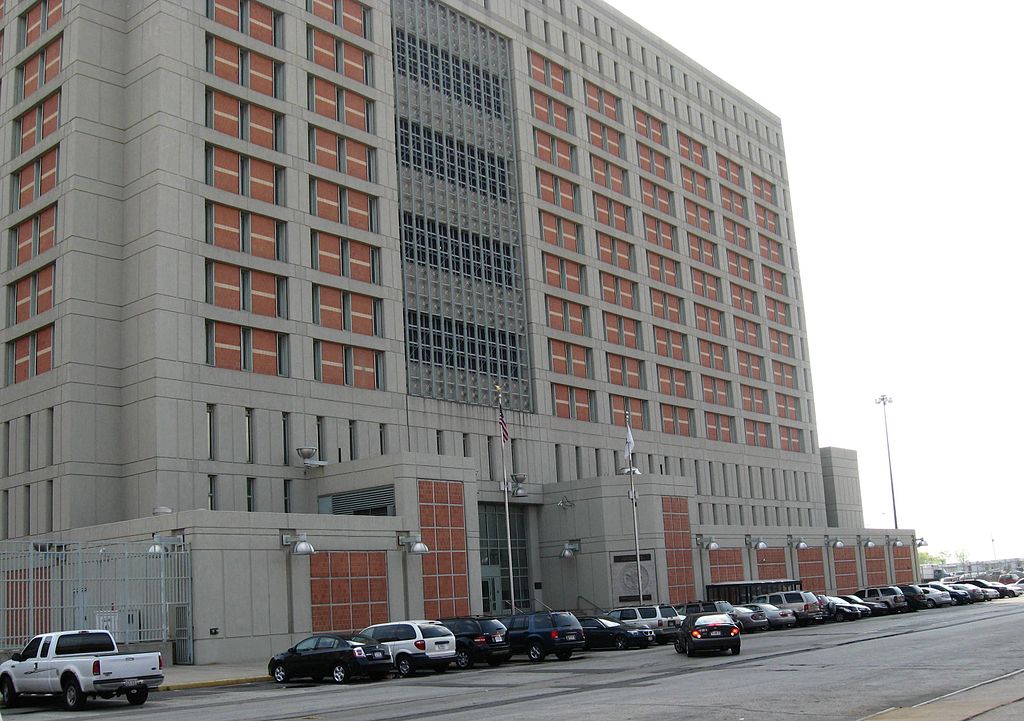Members of Congress are joining criminal justice reform advocates to demand that some people currently in prisons be released to protect them from coronavirus infection. Their call came days after the first person held in a federal jail was diagnosed with COVID-19.
“The COVID-19 pandemic has turned our nation’s jails and prisons into ticking time bombs,” said David Patton, executive director of the Federal Defenders of New York. “Unless federal courts and federal prosecutors take immediate and bold action, we will face a humanitarian crisis of enormous magnitude.”
The first detected COVID-19 case in a federal facility, at the Metropolitan Detention Center (MDC) in Brooklyn, New York, was of a man who arrived on March 16. He had been arrested on a nonviolent charge. He complained of chest pains a few days later and was taken to an outside hospital for testing. The federal Bureau of Prisons (BOP) was informed on March 21 that he had tested positive for COVID-19. He was immediately returned to the MDC and placed in isolation. The incarcerated people and staff members he had been in contact with are also being isolated.
House Judiciary Chairman Jerrold Nadler (D-NY) urged US Attorney General William Barr to take action, both to limit new admissions to the federal prison system and to release certain people already incarcerated.
“We cannot wait any longer to take action,” he wrote in a letter. “In spite of the recent national emergency declaration and the fact that state and local prosecutorial agencies and courts across the country have made adjustments to their charging policies and are releasing prisoners who are at high risk of getting sick, it appears that it is ‘business as usual’ in many US Attorney’s offices. If true, this is deeply distressing.”
Nadler, other Congressmembers, and public health and criminal justice experts convened a virtual press conference on this issue on March 23. They are asking that the Department of Justice (DOJ) and BOP grant compassionate release to incarcerated people who are elderly, those who have chronic health issues, and those who are deemed to pose little public safety risk.
They are also asking that people who are held in pre-trial detention and not yet convicted of any crime be released. Finally, they say prosecutors should “exercise maximum restraint” in incarcerating any new people in prisons or jails, and should only do so for people deemed to pose significant risk to the public.
About one in three people at the MDC, or 570 individuals, are believed to be highly vulnerable to COVID-19. Meanwhile the Metropolitan Correctional Center (MCC), another New York BOP facility, may hold as many as 200 people at high risk.
Anthony Sanon, a union representative who works at the MDC, explained that staff there have no supplies of face masks, hand soap or sanitizer. He also criticized the BOP for continuing to transport incarcerated people in and out of the prison. The risk, of course, is that people may be infected with COVID-19 and show no immediate symptoms.
Patton also stated during the press conference that neither the MDC or MCC has a ventilator, and both are completely incapable of providing advanced medical care for infected people. Sick people would instead have to be transferred and treated at the NYU Langone hospital in Manhattan.
Normal preventative measures against COVID-19 are not an option in prisons. “They are not closed systems,” said Dr. Jonathan Giftos, former medical director at the Rikers Island jail. “There is a tremendous flux of people in and out of the facility, including officers and other staff, who live in communities overwhelmed by positive cases. Mitigating efforts such as physical distancing and frequent hand-washing are impossible in jails.”
“This pandemic reminds us that those walls that we build to try to separate are a whole lot more permeable than we think,” said New York Councilmember Brad Lander. “The virus does not respect prison walls. We have to raise our voices and demand action to protect everyone.”
Outside of the federal system, some criminal justice officials are taking preventative steps to stop the spread of COVID-19 in their jails. As Filter reported, the public defender’s office of San Francisco recently asked that the county jail system take steps to restrict new admissions and release some people currently incarcerated. San Francisco’s district attorney supports some of those measures. And after a superior court ruling and a sheriff’s deputy becoming infected, the county has slowly started releasing some people and restricting new admissions.
Some prosecutors, including in Baltimore, are effectively decriminalizing drug possession and sex work for the duration of the crisis, in order to reduce arrests and local jail populations.
Filter has also reported on the effects of the crisis on criminal justice operations like trials, with some courts being shut down. One federal judge released a man because a ban on jail visits prevented him from working with his defense attorney.
Time will tell if Bill Barr and federal officials heed the warnings of Nadler, his colleagues and experts. President Donald Trump did recently express support for release of “totally non-violent prisoners.”
Photo of Metropolitan Detention Center, Brooklyn by Jim Henderson via WikiMedia Commons/Public Domain




